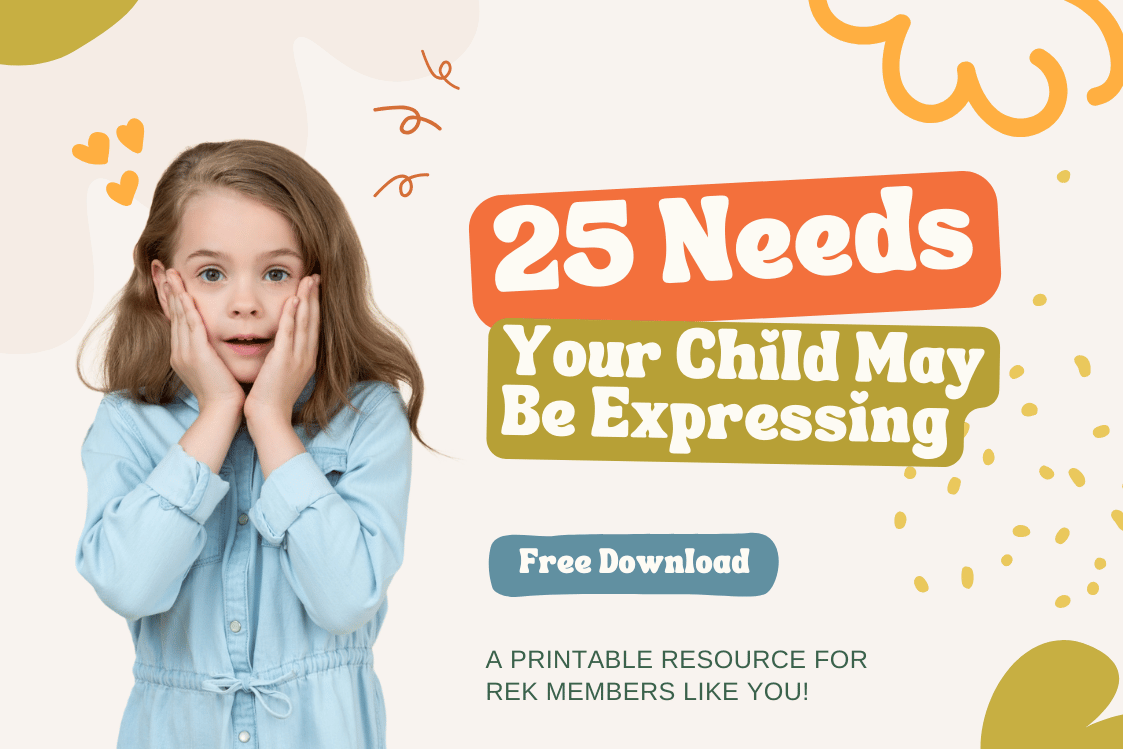The 3 Things Your Child Needs to Thrive in 2025
Happy New Year!
Did you know January is also Positive Parenting Awareness Month? It's the perfect time to take a moment and reflect on our parenting journey.
I'm curious ... what does "positive parenting" mean to you?
Maybe it’s about setting boundaries while keeping things light and fun, teaching your kids to navigate challenges, or simply being there with open ears and a kind heart.
But none of us are positive parents 24/7. Even on those less-than-perfect days, I’ve learned something important as a parent: kids are far more capable than we sometimes realize.
I’ve seen this firsthand in my own family. When I trust my kids to make choices about their screen time, I’m often amazed by how responsible they can be. By giving them the tools and space to make decisions, I empower them to develop self-regulation—a skill that will serve them for life.
So, as we kick off the year, let’s talk about how we can help our kids stay focused and manage distractions—something that starts with understanding their needs.

How to Raise Indistractable Kids
We all know how important nutrients are for our kids' growth, but psychological nutrients are just as vital for shaping their behaviors, choices, and relationships with us.
Nir Eyal, author of Indistractable, explains that kids need three key emotional nutrients—autonomy, competence, and relatedness. These are like emotional fuel that keeps them motivated and grounded. When these needs are met, kids are less likely to turn to digital distractions and more likely to build positive, lasting habits.
Here's a summary of his three powerful ways to meet your kids' deeper needs and guide them toward managing distractions.

1. Encourage Autonomy
Kids thrive when they feel a sense of freedom and control over their choices. In the digital world, they’re in charge—deciding what games to play, apps to use, and people to connect with. In contrast, their real-world lives can often feel overly structured with rules and responsibilities.
To meet their need for autonomy, try giving them more control offline. Let them plan parts of the day, choose family activities, or decide what new skills they’d like to learn. By creating opportunities for them to feel in charge, you can balance the pull of the digital world with real-life independence.
2. Help Them Feel Competent
Kids want to feel like they’re good at something and making progress. When they don’t experience this in school or their hobbies, they often turn to digital outlets like video games or social media, which provide instant feedback and a quick sense of accomplishment.
Ask yourself: Where can my child feel a sense of growth and mastery in their daily life? It might be sports, a creative hobby, or even helping in the kitchen. Real-world wins—like nailing a soccer move or learning to bake cookies—build the confidence they need to tackle bigger challenges.
3. Foster Real Relatedness
Connection matters. Kids naturally seek relationships where they feel valued and supported. While online interactions can provide some of this, face-to-face connections are key to healthy emotional development.
Make space for offline socializing, whether it’s inviting friends over, joining a community group, or simply scheduling family hangouts. These moments of genuine connection can go a long way in fulfilling their need for relatedness.
Teach Media Literacy and Put Kids in Charge
It’s crucial to talk to your kids about media literacy. Kids need to understand that tech companies design algorithms to keep them scrolling, watching, and playing for as long as possible. When they know how the system works, they’re better equipped to resist its pull.
Rather than trying to control their screen time for them, teach your kids how to monitor their own behavior. It’s through practice and self-reflection that they’ll learn to manage their time and attention effectively—skills that will serve them for life.

What Your Child’s Behaviors Are Really Saying

Ever wonder what’s really behind your child’s behaviors? Sometimes, distractions and unwanted actions are signs of deeper needs they may not know how to express.
Our printable, "25 Needs Your Child Might Be Expressing", is designed to help you uncover those hidden clues. Use it as a thoughtful guide to reflect on what might be going on beneath the surface and discover meaningful ways to support your child’s growth.
Download it now and take the first step in turning challenges into opportunities for connection and understanding!

We set the tone for managing distractions and building focus in our homes. By modeling healthy habits and staying mindful of our own behaviors, we create an environment where our kids can learn to do the same.
It’s not about being perfect—it’s about showing them that progress is possible, one small step at a time.
Next week, Tammy will share how she’s helping her kids kick off the new year with routines that promote focus, kindness, and growth. Then, in Week 3, Sylvia will share Tiny Habit strategies to help you and your kids build habits that manage distractions effectively.
In the meantime, we’d love to hear from you! What habits would you like to help your kids develop this year? Share your thoughts and questions in our REK Facebook group, and let’s inspire one another as we kick off 2025 together!
Adam and Mattew, The Biz Brothers

